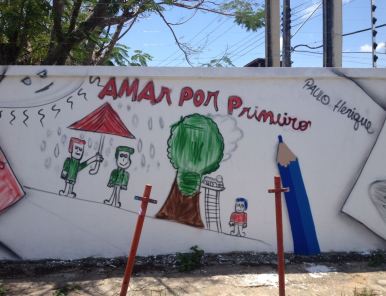
Dec 1, 2016 | Non categorizzato
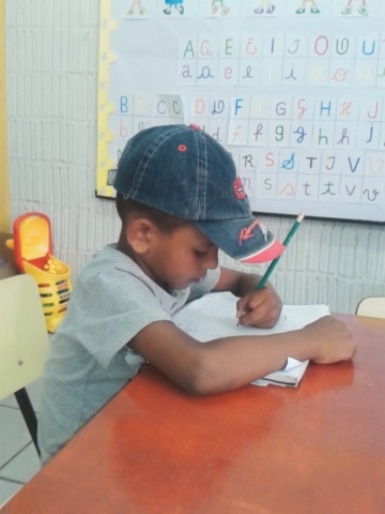 In Coroado on the outskirts of the capital of the State of Amazonas, the wall that separates and protects the centre from the harsh realities of violence and drugs that consume the neighborhood, had begun to deteriorate because of recent rains. Begun in the early 1990s through the efforts of some people from the Focolare Movement, the centre began its work in favour of social inclusion, with a nursery and primary school, but soon turned into a real social agency that was open morning until night. It was begun as an attempt to ensure children and adolescents of the area the right to a harmonious and wholesome development, through educational and recreational activities and support for their families. It is financially supoorted by the generosity of so many people, especially by distance support from the New Families Non Profit Organisation which, in addition to education also provides nutrition and preventive medical care. Several activities followed, such as a study in collaboration with the School of Educational Psychology at the Federal University of Amazonas to identify and overcome the learning problems of some of the young people. There was also also a project carried out and presented by the Pharmacy students to provide the children and their families with a basic knowledge of hygiene, nutrition and personal care. The School of Pharmacy did research project on infectious diseases with blood samples, and provided treatments. There are drug prevention programmes and programmes that combat child labour while parents are offered vocational training courses in collaboration with the Centre of Technology Education of the State of Amazonas. Jeanne and Carlos who work full time for the project recount: “Over the years we came up with Literature and Theatre workshops. We also managed to come up with a programme on emotions and sexuality for teenagers and young adults.”
In Coroado on the outskirts of the capital of the State of Amazonas, the wall that separates and protects the centre from the harsh realities of violence and drugs that consume the neighborhood, had begun to deteriorate because of recent rains. Begun in the early 1990s through the efforts of some people from the Focolare Movement, the centre began its work in favour of social inclusion, with a nursery and primary school, but soon turned into a real social agency that was open morning until night. It was begun as an attempt to ensure children and adolescents of the area the right to a harmonious and wholesome development, through educational and recreational activities and support for their families. It is financially supoorted by the generosity of so many people, especially by distance support from the New Families Non Profit Organisation which, in addition to education also provides nutrition and preventive medical care. Several activities followed, such as a study in collaboration with the School of Educational Psychology at the Federal University of Amazonas to identify and overcome the learning problems of some of the young people. There was also also a project carried out and presented by the Pharmacy students to provide the children and their families with a basic knowledge of hygiene, nutrition and personal care. The School of Pharmacy did research project on infectious diseases with blood samples, and provided treatments. There are drug prevention programmes and programmes that combat child labour while parents are offered vocational training courses in collaboration with the Centre of Technology Education of the State of Amazonas. Jeanne and Carlos who work full time for the project recount: “Over the years we came up with Literature and Theatre workshops. We also managed to come up with a programme on emotions and sexuality for teenagers and young adults.” The latest win was described by Janine and Carlos: “The economic crisis is making the situation of our country more and more difficult. For example, one institution that offered a computer course for more than ten years, had to stop collaborating with us. Some of the children’s parents are losing their jobs. And the financial resources for repairing our protective wall that had assumed a gloomy and even threatening appearance often defaced by vandals, were just not available. Then we had the idea of appealing to the Manaus Court of Justice and proposing a partnership called “Let’s paint the wall.” The proposal, which was subsequently passed, would portray in images the experience and the values that we live with the children at the Social Centre and to give an air of joy and harmony to our neighborhood. We wanted the boys and girls to be engaged in this project, so we collected their drawings so that they could be reproduced on the wall.” The newly restored and painted wall was unvieled on October 27th. “It was a very joful event for us,” say Janine and Carlos, “because this recognition from the Court of Justice not only comforts the centre and its efforts, but it allows us to bring ahead the project in the best way we can. We especially thank the many people who generously support us in giving the boys and girls the opportunity to gain knowledge and training that will allow them to take their life in their own hands and become new women and new men.” Giovanna Pieroni
The latest win was described by Janine and Carlos: “The economic crisis is making the situation of our country more and more difficult. For example, one institution that offered a computer course for more than ten years, had to stop collaborating with us. Some of the children’s parents are losing their jobs. And the financial resources for repairing our protective wall that had assumed a gloomy and even threatening appearance often defaced by vandals, were just not available. Then we had the idea of appealing to the Manaus Court of Justice and proposing a partnership called “Let’s paint the wall.” The proposal, which was subsequently passed, would portray in images the experience and the values that we live with the children at the Social Centre and to give an air of joy and harmony to our neighborhood. We wanted the boys and girls to be engaged in this project, so we collected their drawings so that they could be reproduced on the wall.” The newly restored and painted wall was unvieled on October 27th. “It was a very joful event for us,” say Janine and Carlos, “because this recognition from the Court of Justice not only comforts the centre and its efforts, but it allows us to bring ahead the project in the best way we can. We especially thank the many people who generously support us in giving the boys and girls the opportunity to gain knowledge and training that will allow them to take their life in their own hands and become new women and new men.” Giovanna Pieroni
Nov 29, 2016 | Non categorizzato
Nov 28, 2016 | Non categorizzato, Word of
https://www.focolare.org/gb/files/2016/11/2016-12.mp3
Word of Life for ages 4-8 | for ages 9-14 | for ages 15-17
The verb is in the present tense: “He comes …” We can be sure of his coming in this very moment. We do not have to wait till tomorrow, or the end of time, or the next life. God acts immediately, because love shuns both hesitation and delay. The prophet Isaiah is speaking to a people anxiously waiting for their exile to end so they can return to their homeland. For us too who are waiting for Christmas, we cannot but recall a similar promise given to Mary: “The Lord is with you” (Lk 1:28), as the angel announces to her the birth of the Lord. The Lord does not come for a casual visit. His is a decisive intervention, a matter of greatest importance. He comes to save us! From what? Are we in grave danger? Yes. At times we are aware of it, at other times not. He intervenes because he sees our selfishness, our indifference to those who suffer or who are in need, our hatred, our divisions. The heart of humanity is ailing. Moved by pity, he comes towards each one he has made, who he does not want to be lost. The Lord offers his outstretched hand as if to the drowning victim of a shipwreck. Sadly these days this image is always in front us, brought to mind day by day when we see those refugees who are trying to cross seas, those immigrants crossing borders. We witness how quickly they grasp an outstretched hand or a life jacket. We too, in every moment, can grasp God’s outstretched hand and follow him with trust. He does not only heal our hearts from self-absorption, which closes us off from others, but he makes us, in our turn, able to help those who are in need, who are sorrowful, who are going through trials. “Certainly it is not the historical Jesus or Jesus as head of the Mystical Body who sorts out our problems,” wrote Chiara Lubich. “It is done by Jesus-us, Jesus-me, Jesus-you… It is Jesus in human beings, in that specific human being (when grace is present in him or her) who builds a bridge, lays down a road … “It is as another Christ, as a member of his Mystical Body, that each human being brings his or her characteristic contribution in all fields: in the sciences, in the arts, in politics, in communications, and so on.” The person thus works together with Christ. “It is the incarnation that continues, a complete incarnation that involves all those who are Jesus in Christ’s Mystical Body.” (“Jesus Forsaken and the Collective and Cultural Night,” an address given by Chiara Lubich to a group of young women on January 7, 2007). This is exactly what happened to Roberto, an ex-convict who found someone who “saved” him and who then, in turn, became someone who “saved” others. He told his experience at a Focolare gathering in Villa Borghese in Rome last April. “When my long-term prison sentence came to an end, I thought I would start life again, but as usually happens, even if you have paid your debt to society, you still seem very suspect to people. “I found the doors shut in my search for work. I had to beg on the streets, and for seven months I lived as a tramp. But then I met Alfonso who, through an organization started by him, helps prisoners’ families. “He said to me, ‘If you want to start again, come with me.’ For a year now I have been helping him prepare food packages for these families in whom I see a reflection of myself. I see the dignity of these women who are alone with little children, living in desperate situations, waiting for someone to give them a bit of comfort, a bit of love. “Giving of myself, I have rediscovered my own dignity as a human being, and my life has meaning. I have more strength because I have God in my heart, and I feel I am loved …” Fr. Fabio Ciardi, OMI Each month the Focolare offers a Scripture passage as a guide and inspiration for daily living. Ever since the Focolare’s earliest years, founder Chiara Lubich (1920–2008) wrote her own commentaries each month. Now Fr. Fabio Ciardi, OMI, theologian and close collaborator of Lubich, heads a group of scripture experts who have been entrusted with the task of writing the Word of Life commentaries, reflecting her thoughts and her spirituality of unity. This Word of Life is translated into 96 different languages and reaches several million people worldwide through the media. This monthly leaflet is also a supplement to Living City, the Focolare magazine (livingcitymagazine.com). For information and to subscribe to this leaflet or to the magazine, write to: Living City, 202 Comforter Blvd, Hyde Park, NY 12538; tel: 845-229-0496; e-mail: livingcity@livingcitymagazine.com. Visit focolare.org (international) or focolare.us (U.S.). © 2016 by Living City of the Focolare Movement, Inc. Read more: Lubich, Chiara. “How I met you,” Essential Writings, New City Press: Hyde Park, New York: 2007, p. 56. Lubich, Chiara. “The attraction of modern times,” Essential Writings, New City Press: Hyde Park, New York: 2007, pp.169–178.
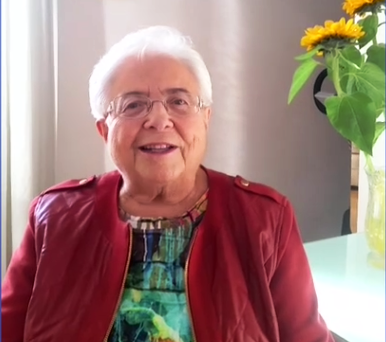
Nov 27, 2016 | Non categorizzato
 “I have seen how seriously you have been preparing for this moment and this makes me very happy indeed, and gives me great peace for the Movement’s future, because I have seen that you have taken Chiara (Lubich’s) legacy seriously which is handed on to the second generation in the Movement … with the same zeal” as at the start of the Movement. In response to various questions that the young people asked her, on Jesus forsaken, the point of the spirituality of unity which has been chosen to go into depth with this year, Maria Voce explained: “God sent his Son to re-build these bonds, [of unity between God and humankind and among all people] so to do something great.” In order to do this “Jesus did not choose to come with an armada … but he chose a means that maybe is not understood first off; he chose the means of the cross. The means of the cross which for Jesus meant loving right to the end, the greatest love of all, taking on himself all of humanity’s pain, all sufferings, all humiliations, purely out of love! And in the moment he did it, Jesus made a new creation, he created a new unity, he redeemed humanity, so he re-established the unity that humankind had lost with God and people had lost among themselves; it was the greatest of works.” “So in that moment Jesus forsaken is truly the victorious King! He is not only someone who is suffering. Yes, suffering was the means that He chose, but it was because through that suffering he showed the greatest love; because he bore witness before people as to how much the Father loved them and how much he was ready to suffer out of love for the Father and love for them. Now Jesus forsaken comes to us and says the same thing: “Do you want to bear witness to God’s love in front of the whole world, and all people? Then use the same means as I did. Make yourself one with them right to the end, take on the sufferings, pain, doubts and anguish that people feel,” creating “bonds which will make the human family a real family of God’s children, bonded with one another and with the Father.” Concerning questions about their future, Maria Voce answered: Be generous with God! If you truly feel that God is calling you somehow, that he is speaking in the depths of your heart, don’t pay attention to anything else, pay attention only to this voice and say yes … then He will be the one to take you where he wants you to be”, to fulfil God’s “plan of love for each one that will give you the greatest happiness. I wish you this with all my heart!” Gustavo Clariá https://vimeo.com/192601570
“I have seen how seriously you have been preparing for this moment and this makes me very happy indeed, and gives me great peace for the Movement’s future, because I have seen that you have taken Chiara (Lubich’s) legacy seriously which is handed on to the second generation in the Movement … with the same zeal” as at the start of the Movement. In response to various questions that the young people asked her, on Jesus forsaken, the point of the spirituality of unity which has been chosen to go into depth with this year, Maria Voce explained: “God sent his Son to re-build these bonds, [of unity between God and humankind and among all people] so to do something great.” In order to do this “Jesus did not choose to come with an armada … but he chose a means that maybe is not understood first off; he chose the means of the cross. The means of the cross which for Jesus meant loving right to the end, the greatest love of all, taking on himself all of humanity’s pain, all sufferings, all humiliations, purely out of love! And in the moment he did it, Jesus made a new creation, he created a new unity, he redeemed humanity, so he re-established the unity that humankind had lost with God and people had lost among themselves; it was the greatest of works.” “So in that moment Jesus forsaken is truly the victorious King! He is not only someone who is suffering. Yes, suffering was the means that He chose, but it was because through that suffering he showed the greatest love; because he bore witness before people as to how much the Father loved them and how much he was ready to suffer out of love for the Father and love for them. Now Jesus forsaken comes to us and says the same thing: “Do you want to bear witness to God’s love in front of the whole world, and all people? Then use the same means as I did. Make yourself one with them right to the end, take on the sufferings, pain, doubts and anguish that people feel,” creating “bonds which will make the human family a real family of God’s children, bonded with one another and with the Father.” Concerning questions about their future, Maria Voce answered: Be generous with God! If you truly feel that God is calling you somehow, that he is speaking in the depths of your heart, don’t pay attention to anything else, pay attention only to this voice and say yes … then He will be the one to take you where he wants you to be”, to fulfil God’s “plan of love for each one that will give you the greatest happiness. I wish you this with all my heart!” Gustavo Clariá https://vimeo.com/192601570
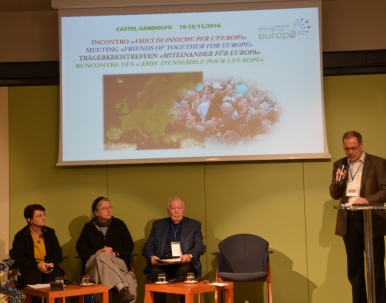
Nov 24, 2016 | Non categorizzato
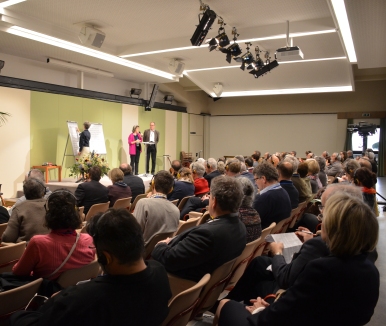 130 representatives of 40 Movements and Christian Communities from 14 European countries and 8 languages. These are the numbers from a three-day Together for Europe meeting held at the Focolare Movement International Centre, Castel Gandolfo, Italy. “We heard about the Paris attacks on year ago during our annual meeting in Holland,” Beatriz Lauenroth recalls. “Those and other events that are leading to fragmenation in Europe, show the need for encounter and working together for unity.” Many of the participants underscored this need, such as German Elke Pechmann from the Offensive Junger Christen: “Together for Europe is not an extra luxury, it’s not merely something more. It’s a noteworthy investment in the present and especially the future of Europe.” Moscow representative Larisa Musina from the Transfiguration Fellowship of Minor Orthodox Brotherhoods, Saint Philaret underscored the importance of deepening our knowledge of one another in order to increase dialogue: “We need to widen the dialogue between countries of the East and the West. Together with other Eastern European countries we Russians also have much to give to the West.” Switzerland made the voice of the young be heard: “The five of us young people representing Jacksonville Association of Health Underwriters (JAHU),” Selomi Zürcher explained, “feel that the future of Europe is also of concern to us. We value the experience and wisdom of our elders. And we ask them to have faith in us, and to learn from us as well. Thus the Europe of our forefathers will also be the Europe of the sons and daughters.”
130 representatives of 40 Movements and Christian Communities from 14 European countries and 8 languages. These are the numbers from a three-day Together for Europe meeting held at the Focolare Movement International Centre, Castel Gandolfo, Italy. “We heard about the Paris attacks on year ago during our annual meeting in Holland,” Beatriz Lauenroth recalls. “Those and other events that are leading to fragmenation in Europe, show the need for encounter and working together for unity.” Many of the participants underscored this need, such as German Elke Pechmann from the Offensive Junger Christen: “Together for Europe is not an extra luxury, it’s not merely something more. It’s a noteworthy investment in the present and especially the future of Europe.” Moscow representative Larisa Musina from the Transfiguration Fellowship of Minor Orthodox Brotherhoods, Saint Philaret underscored the importance of deepening our knowledge of one another in order to increase dialogue: “We need to widen the dialogue between countries of the East and the West. Together with other Eastern European countries we Russians also have much to give to the West.” Switzerland made the voice of the young be heard: “The five of us young people representing Jacksonville Association of Health Underwriters (JAHU),” Selomi Zürcher explained, “feel that the future of Europe is also of concern to us. We value the experience and wisdom of our elders. And we ask them to have faith in us, and to learn from us as well. Thus the Europe of our forefathers will also be the Europe of the sons and daughters.”  One question which kept coming up in the presentations, personal conversations and work groups was – what the path forward should be for Together for Europe and there were several concrete suggestions. They were all steps that could be taken by individual Movements and Communities during 2017, both for their own countries and Together for Europe. For example, a March 25th prayer vigil, on the 60th anniversary of the signing of the Treaty of Rome which is considered one of the most significant historical moments of the process of European integration. It will gather many European political figures in Rome. Together for Europe would also like to be there and has already sent a document to the politicians regarding “our idea of Europe, and we hope that similar vigils can be held in European cities where we have a presence.” Another initiatitve that the participants felt to be important was that spaces for encounter and sharing be created. “We want to increase the communion among the Movements at local levels and offer even more events for individual cities.” The impressions people shared during the closing express the enthusiasm they experienced in being together. A young woman from Germany said: “I’d like more young people to catch my enthusiasm for Together for Europe, and I hope that next year there will be even more of us.” A young man from Slovenia: “When we get home we’ll update all the other Movements in Slovenia about what we experienced here. We’ll also invite a Catholic and Lutheran bishop, so that they may know that the laity is also with the Church and stepping into action for the better future of the continent.” With the meeting of Castel Gandolfo participation in Together for Europe has expanded to Religious Congregations and ancient charismatic communities. The next Friends of Together for Europe event is planned for November 9-11, 2017 in Vienna, Austria.
One question which kept coming up in the presentations, personal conversations and work groups was – what the path forward should be for Together for Europe and there were several concrete suggestions. They were all steps that could be taken by individual Movements and Communities during 2017, both for their own countries and Together for Europe. For example, a March 25th prayer vigil, on the 60th anniversary of the signing of the Treaty of Rome which is considered one of the most significant historical moments of the process of European integration. It will gather many European political figures in Rome. Together for Europe would also like to be there and has already sent a document to the politicians regarding “our idea of Europe, and we hope that similar vigils can be held in European cities where we have a presence.” Another initiatitve that the participants felt to be important was that spaces for encounter and sharing be created. “We want to increase the communion among the Movements at local levels and offer even more events for individual cities.” The impressions people shared during the closing express the enthusiasm they experienced in being together. A young woman from Germany said: “I’d like more young people to catch my enthusiasm for Together for Europe, and I hope that next year there will be even more of us.” A young man from Slovenia: “When we get home we’ll update all the other Movements in Slovenia about what we experienced here. We’ll also invite a Catholic and Lutheran bishop, so that they may know that the laity is also with the Church and stepping into action for the better future of the continent.” With the meeting of Castel Gandolfo participation in Together for Europe has expanded to Religious Congregations and ancient charismatic communities. The next Friends of Together for Europe event is planned for November 9-11, 2017 in Vienna, Austria.
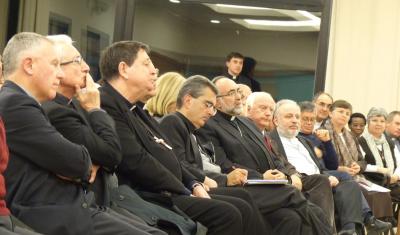
Nov 23, 2016 | Non categorizzato
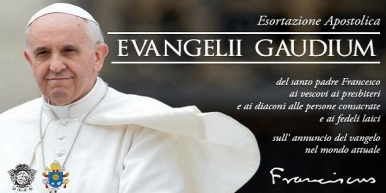 A first initiative already launched in October, well expressed the dynamism and creativity of the new Evangelii Gaudium Centre (EGC) which, even before the official inauguration, broke the ice with a course for educators, animators and missionary, pastoral theology students, entitled “Wake up the World.” This new Centre arose from the synergy between the Sophia University Institute (IUS) and the Focolare Movement, particularly the Presbyterians, deacons, seminarians, religious men and women, Parish and the Diocesan Movement directly involved in the ecclesial world. It was thus an already active Centre, which celebrated its first day of public life last November, taking the occasion to explain its mission: to give enthusiasm, orientation and content to the work of pastoral renewal of the evangelisation the Church is called to perform today. It is a commitment which the EGC intends to undertake as a response to Pope Francis, drawing inspiration and its name from “Evangelii Gaudium,” his apostolic exhortation. Through courses, conventions, seminars, symposiums, workshops, and scientific meetings, the EGC wishes to be a “place of thought” solidly bound to the synod stylelines gathering together all those spiritual inspirations and experiences generated by Chiara Lubich’s charism of unity. And it aims to do so by focusing on formation, studies and research within the framework of ecclesiology, pastoral theology and the missions, spiritual theology and the theology of charisms in the life of the Church today.
A first initiative already launched in October, well expressed the dynamism and creativity of the new Evangelii Gaudium Centre (EGC) which, even before the official inauguration, broke the ice with a course for educators, animators and missionary, pastoral theology students, entitled “Wake up the World.” This new Centre arose from the synergy between the Sophia University Institute (IUS) and the Focolare Movement, particularly the Presbyterians, deacons, seminarians, religious men and women, Parish and the Diocesan Movement directly involved in the ecclesial world. It was thus an already active Centre, which celebrated its first day of public life last November, taking the occasion to explain its mission: to give enthusiasm, orientation and content to the work of pastoral renewal of the evangelisation the Church is called to perform today. It is a commitment which the EGC intends to undertake as a response to Pope Francis, drawing inspiration and its name from “Evangelii Gaudium,” his apostolic exhortation. Through courses, conventions, seminars, symposiums, workshops, and scientific meetings, the EGC wishes to be a “place of thought” solidly bound to the synod stylelines gathering together all those spiritual inspirations and experiences generated by Chiara Lubich’s charism of unity. And it aims to do so by focusing on formation, studies and research within the framework of ecclesiology, pastoral theology and the missions, spiritual theology and the theology of charisms in the life of the Church today.  The important EGC objectives were highlighted by the Focolare President, Maria Voce, in her welcome speech and that of the Co-President, Jesús Morán: to promote and support projects and activities of formation along the lines of Vatican II in communion with the other charisms of the Church, in the perspective of ecumenical, interreligious and intercultural dialogue. These objectives were deeply echoed also in the greetings coming from the General Secretary of Italian Bishops, Bishop Galantino, and the Grand Chancellor of Sophia, Bishop Betori, Archbishop of Florence. The working session of the inaugural convention was opened by Card. Joao Braz de Aviz, Prefect of the Congregation for the Institutes of Consecrated Life, and Archbishop Vincenzo Zani, Secretary of the Congregation for Catholic Education. Sophia University Rector, Prof. Piero Coda, was instead given the task of describing the aims of the new Centre, followed by Prof.Tiziana Merletti (former Mother General of the Franciscan Nuns of the Poor). «The challenge consists in giving a contribution to that change of paradigm in culture and relations between ecclesial communities and civil society – declared Piero Coda – which our time demands, and to which the prophecy of Pope Francis repeats with force, that the time has come to start with faithfulness and creativity». In the next round table there will be a confrontation between exponents of the worlds of politics and sports, represented by Massimo Toschi and Damiano Tommasi, on the long awaited epochal historical transition of the Church which has been called to investigate and gather the expectations and hopes of society today. Anna Friso
The important EGC objectives were highlighted by the Focolare President, Maria Voce, in her welcome speech and that of the Co-President, Jesús Morán: to promote and support projects and activities of formation along the lines of Vatican II in communion with the other charisms of the Church, in the perspective of ecumenical, interreligious and intercultural dialogue. These objectives were deeply echoed also in the greetings coming from the General Secretary of Italian Bishops, Bishop Galantino, and the Grand Chancellor of Sophia, Bishop Betori, Archbishop of Florence. The working session of the inaugural convention was opened by Card. Joao Braz de Aviz, Prefect of the Congregation for the Institutes of Consecrated Life, and Archbishop Vincenzo Zani, Secretary of the Congregation for Catholic Education. Sophia University Rector, Prof. Piero Coda, was instead given the task of describing the aims of the new Centre, followed by Prof.Tiziana Merletti (former Mother General of the Franciscan Nuns of the Poor). «The challenge consists in giving a contribution to that change of paradigm in culture and relations between ecclesial communities and civil society – declared Piero Coda – which our time demands, and to which the prophecy of Pope Francis repeats with force, that the time has come to start with faithfulness and creativity». In the next round table there will be a confrontation between exponents of the worlds of politics and sports, represented by Massimo Toschi and Damiano Tommasi, on the long awaited epochal historical transition of the Church which has been called to investigate and gather the expectations and hopes of society today. Anna Friso

 In Coroado on the outskirts of the capital of the State of Amazonas, the wall that separates and protects the centre from the harsh realities of violence and drugs that consume the neighborhood, had begun to deteriorate because of recent rains. Begun in the early 1990s through the efforts of some people from the Focolare Movement, the centre began its work in favour of social inclusion, with a nursery and primary school, but soon turned into a real social agency that was open morning until night. It was begun as an attempt to ensure children and adolescents of the area the right to a harmonious and wholesome development, through educational and recreational activities and support for their families. It is financially supoorted by the generosity of so many people, especially by distance support from the New Families Non Profit Organisation which, in addition to education also provides nutrition and preventive medical care. Several activities followed, such as a study in collaboration with the School of Educational Psychology at the Federal University of Amazonas to identify and overcome the learning problems of some of the young people. There was also also a project carried out and presented by the Pharmacy students to provide the children and their families with a basic knowledge of hygiene, nutrition and personal care. The School of Pharmacy did research project on infectious diseases with blood samples, and provided treatments. There are drug prevention programmes and programmes that combat child labour while parents are offered vocational training courses in collaboration with the Centre of Technology Education of the State of Amazonas. Jeanne and Carlos who work full time for the project recount: “Over the years we came up with Literature and Theatre workshops. We also managed to come up with a programme on emotions and sexuality for teenagers and young adults.”
In Coroado on the outskirts of the capital of the State of Amazonas, the wall that separates and protects the centre from the harsh realities of violence and drugs that consume the neighborhood, had begun to deteriorate because of recent rains. Begun in the early 1990s through the efforts of some people from the Focolare Movement, the centre began its work in favour of social inclusion, with a nursery and primary school, but soon turned into a real social agency that was open morning until night. It was begun as an attempt to ensure children and adolescents of the area the right to a harmonious and wholesome development, through educational and recreational activities and support for their families. It is financially supoorted by the generosity of so many people, especially by distance support from the New Families Non Profit Organisation which, in addition to education also provides nutrition and preventive medical care. Several activities followed, such as a study in collaboration with the School of Educational Psychology at the Federal University of Amazonas to identify and overcome the learning problems of some of the young people. There was also also a project carried out and presented by the Pharmacy students to provide the children and their families with a basic knowledge of hygiene, nutrition and personal care. The School of Pharmacy did research project on infectious diseases with blood samples, and provided treatments. There are drug prevention programmes and programmes that combat child labour while parents are offered vocational training courses in collaboration with the Centre of Technology Education of the State of Amazonas. Jeanne and Carlos who work full time for the project recount: “Over the years we came up with Literature and Theatre workshops. We also managed to come up with a programme on emotions and sexuality for teenagers and young adults.” The latest win was described by Janine and Carlos: “The economic crisis is making the situation of our country more and more difficult. For example, one institution that offered a computer course for more than ten years, had to stop collaborating with us. Some of the children’s parents are losing their jobs. And the financial resources for repairing our protective wall that had assumed a gloomy and even threatening appearance often defaced by vandals, were just not available. Then we had the idea of appealing to the Manaus Court of Justice and proposing a partnership called “Let’s paint the wall.” The proposal, which was subsequently passed, would portray in images the experience and the values that we live with the children at the Social Centre and to give an air of joy and harmony to our neighborhood. We wanted the boys and girls to be engaged in this project, so we collected their drawings so that they could be reproduced on the wall.” The newly restored and painted wall was unvieled on October 27th. “It was a very joful event for us,” say Janine and Carlos, “because this recognition from the Court of Justice not only comforts the centre and its efforts, but it allows us to bring ahead the project in the best way we can. We especially thank the many people who generously support us in giving the boys and girls the opportunity to gain knowledge and training that will allow them to take their life in their own hands and become new women and new men.” Giovanna Pieroni
The latest win was described by Janine and Carlos: “The economic crisis is making the situation of our country more and more difficult. For example, one institution that offered a computer course for more than ten years, had to stop collaborating with us. Some of the children’s parents are losing their jobs. And the financial resources for repairing our protective wall that had assumed a gloomy and even threatening appearance often defaced by vandals, were just not available. Then we had the idea of appealing to the Manaus Court of Justice and proposing a partnership called “Let’s paint the wall.” The proposal, which was subsequently passed, would portray in images the experience and the values that we live with the children at the Social Centre and to give an air of joy and harmony to our neighborhood. We wanted the boys and girls to be engaged in this project, so we collected their drawings so that they could be reproduced on the wall.” The newly restored and painted wall was unvieled on October 27th. “It was a very joful event for us,” say Janine and Carlos, “because this recognition from the Court of Justice not only comforts the centre and its efforts, but it allows us to bring ahead the project in the best way we can. We especially thank the many people who generously support us in giving the boys and girls the opportunity to gain knowledge and training that will allow them to take their life in their own hands and become new women and new men.” Giovanna Pieroni




